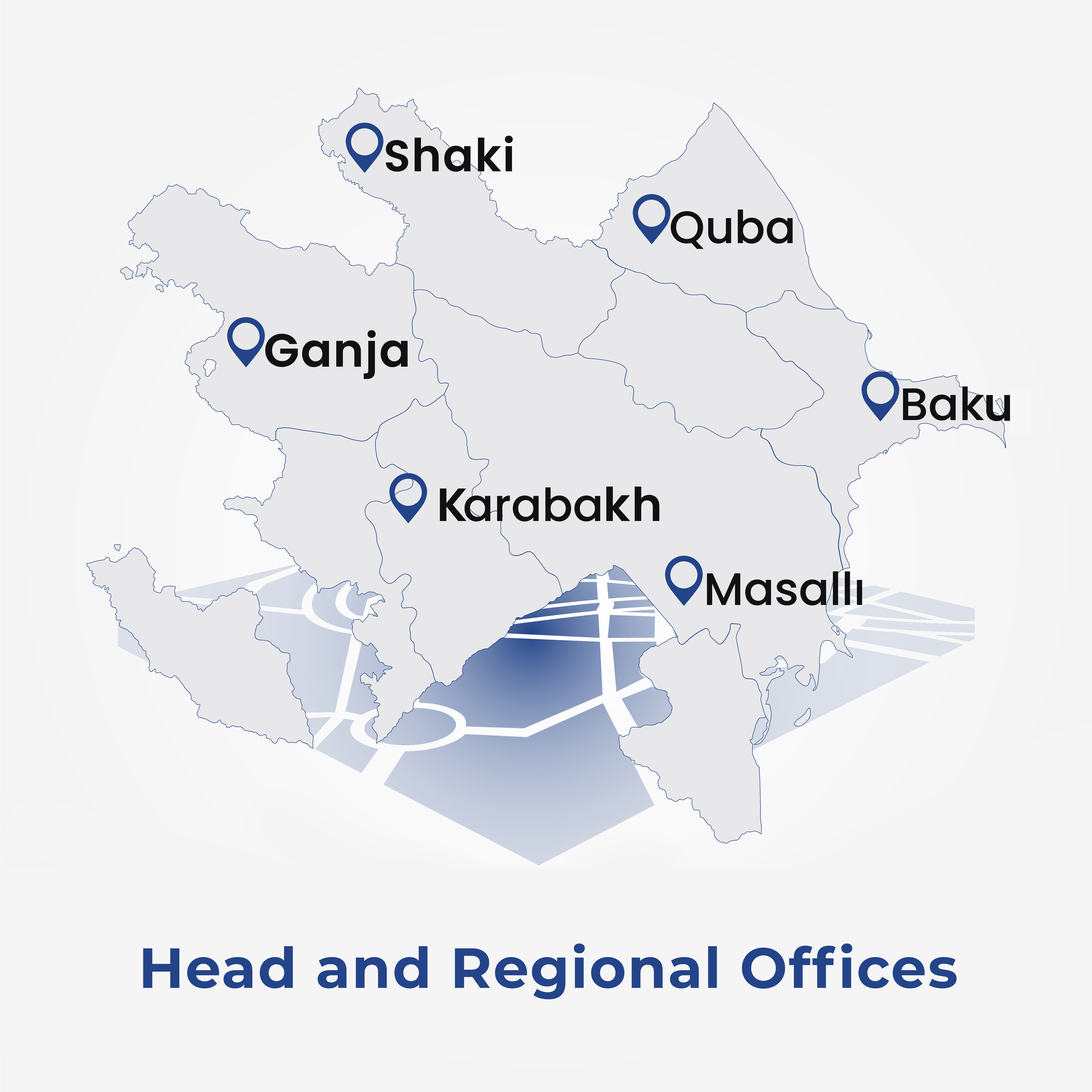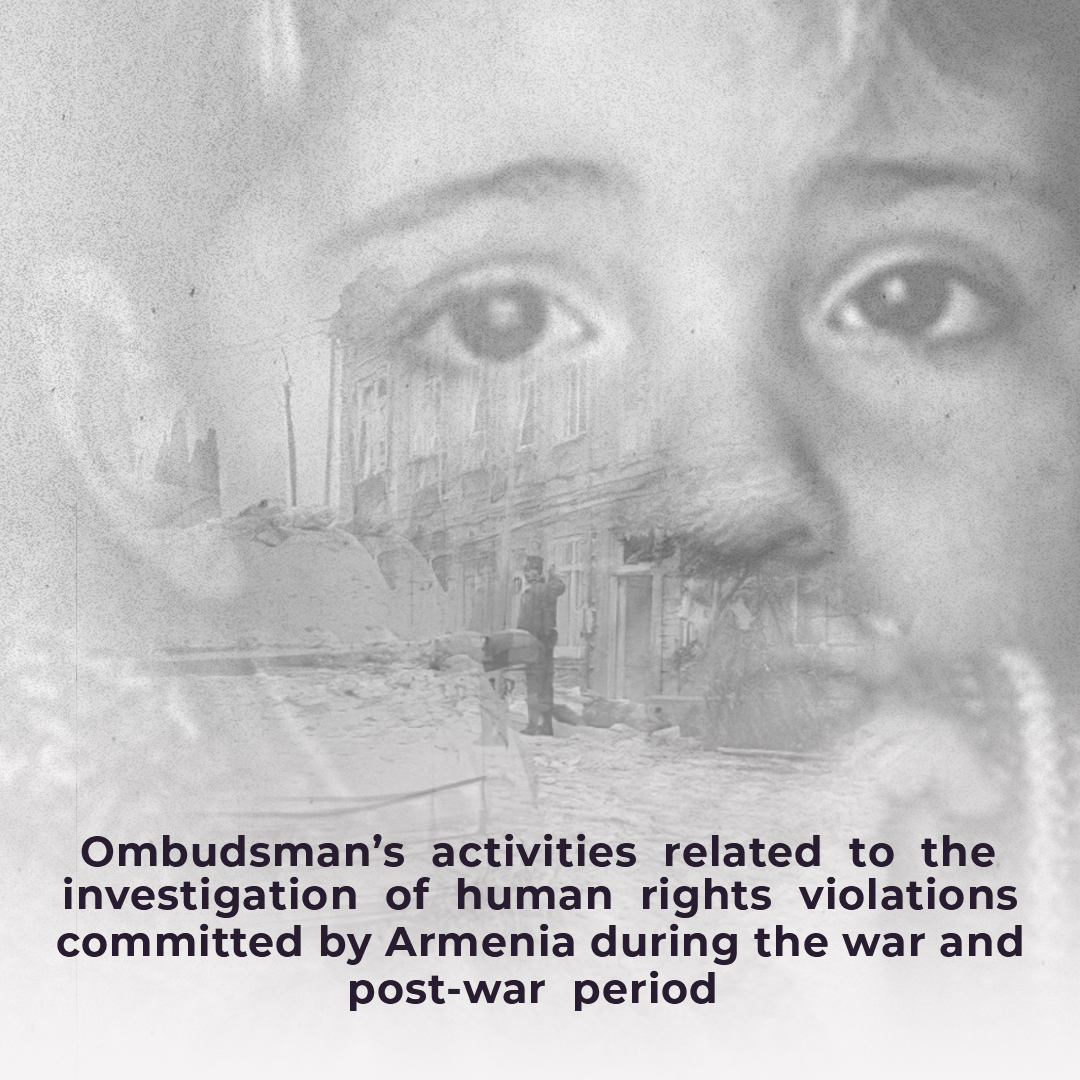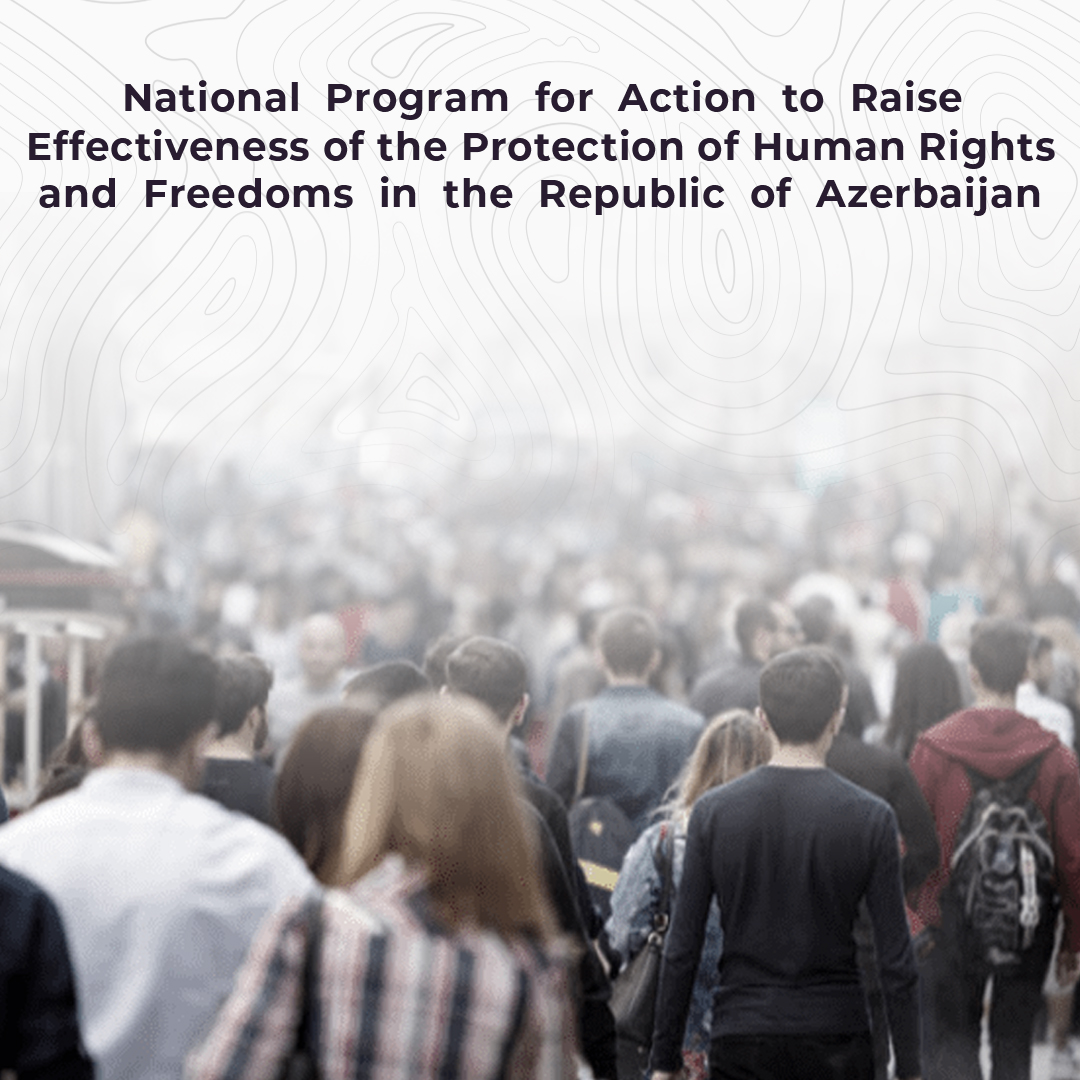
- Home page
- Commissioner
-
Activity Directions
- Mental Health and Human Rights
- Protection of the Rights of Population Groups
- Protection of the Right to Information
- Independent Monitoring Mechanism
- Legal Education
-
International Cooperation
- Cooperation with international organizations
- Cooperation with non-governmental organizations
- Study visits
- Projects
- Statements addressed to the international organizations
- “Ad hoc” reports
- Parallel and alternative reports submitted to the UN Treaty Bodies
- Oral and written statements submitted to the UN Human Rights Council
- Memorandums of cooperation
- Baku Declarations of Ombudspersons
- International Baku Forum
- Scientific Analytical Work
- Cooperation with Public and Civil Society Organizations
- Business and Human Rights
- National Preventive Mechanism Against Torture
- Protection of Human Rights
- Documents
- Media
- Live
- Contact
- Home page
- Commissioner
-
Activity Directions
- Mental Health and Human Rights
- Protection of the Rights of Population Groups
- Protection of the Right to Information
- Independent Monitoring Mechanism
- Legal Education
-
International Cooperation
- Cooperation with international organizations
- Cooperation with non-governmental organizations
- Study visits
- Projects
- Statements addressed to the international organizations
- “Ad hoc” reports
- Parallel and alternative reports submitted to the UN Treaty Bodies
- Oral and written statements submitted to the UN Human Rights Council
- Memorandums of cooperation
- Baku Declarations of Ombudspersons
- International Baku Forum
- Scientific Analytical Work
- Cooperation with Public and Civil Society Organizations
- Business and Human Rights
- National Preventive Mechanism Against Torture
- Protection of Human Rights
- Documents
- Media
- Live
- Contact
Call center
916
National Preventive Group conducted visit to Temporary Detention Place and Investigation Isolator of State Security Service
National Preventive Group (NPG) carried out a visit to the Temporary Detention Place and Investigation Isolator of the State Security Service without prior notice within the National Preventive Mechanism activity of the Commissioner for Human Rights (Ombudsman).
The visit, organized on the basis of the OPCAT requirements and the Constitutional Law on Ombudsman, was aimed at investigation of detention conditions and treatment issues, state of ensuring the rights of detained persons.
During the visit, detention conditions, state of ensuring rights regarding nutrition, medical assistance, walking, phone calls, meeting etc., also the treatment issues were investigated. For this purpose, randomly selected accused persons detained in this facility were received individually.
Polad Aslanov, about whom information on food refusal was disseminated through internet, was also received. During the meeting he reported that he takes food.
Appeals of the received persons were heard; their rights and respective legislative requirements were explained. Some of the detained persons, who raised issues about investigation conducted on their cases, were provided with legal consult within the scope of competences of the Ombudsman.
At the end of the visit, guarantee of the rights of detained persons were discussed with the administration of the Temporary Detention Place and Investigation Isolator, as well as they were given recommendations according to the national and international legislation.
It should be mentioned that the Commissioner Elmira Suleymanova and members of the NPG regularly conduct visits to the places, which persons cannot leave on their own will, and investigate the conditions of detention, treatment issues, organization of medical service.
Along with organizing discussions on the recommendations made during previous visits, their implementation is also monitored on site. Furthermore, legal awareness-raising trainings are organized for the staff of these facilities in accordance with national and international legal norms, also recommendations which were made in relation to our country by treaty bodies acting on the basis of core international human rights treaties.
- National preventive mechanism against torture
- Protection of the rights of population groups
- Protection of the rights of refugees, IDPs and migrants
- Protection of the rights of detainees and prisoners
- Protection of the rights of military servants
- Protection of women's rights and provision of gender equality
- Protection of child rights
- General
- Legal awareness
- Protection of the rights of older people
- Protection of the rights of persons with disabilities
- Cooperation with public and civil society
- National preventive mechanism against torture
- International cooperation
- Non-Governmental Organizations
- Public hearings
- Mass media
- Business and Human Rights
- Protection of the rights of martyrs' families and war veterans
- Protection of the rights of migrants
- Prevention of discrimination and ensuring equality
- Right to information
- Mental health
- .
-

- The Ombudsman participated in the International Conference on “Artificial Intelligence and Human Rights: Opportunities, Risks and Visions for a Better Future” in Qatar.
-

- The Ombudsman sent letter to UN High Commissioner for Refugees regarding protection of rights of persons deported from Armenia.
-

- A representative of the Ombudsman Office took part in an event organized by the Ministry of Energy.
-

- The Ombudsman’s representatives participated in the Pardon Decree Enforcement Ceremony.
-

- A series of legal awareness events were organized by the Ombudsman's Regional Centers.
-




